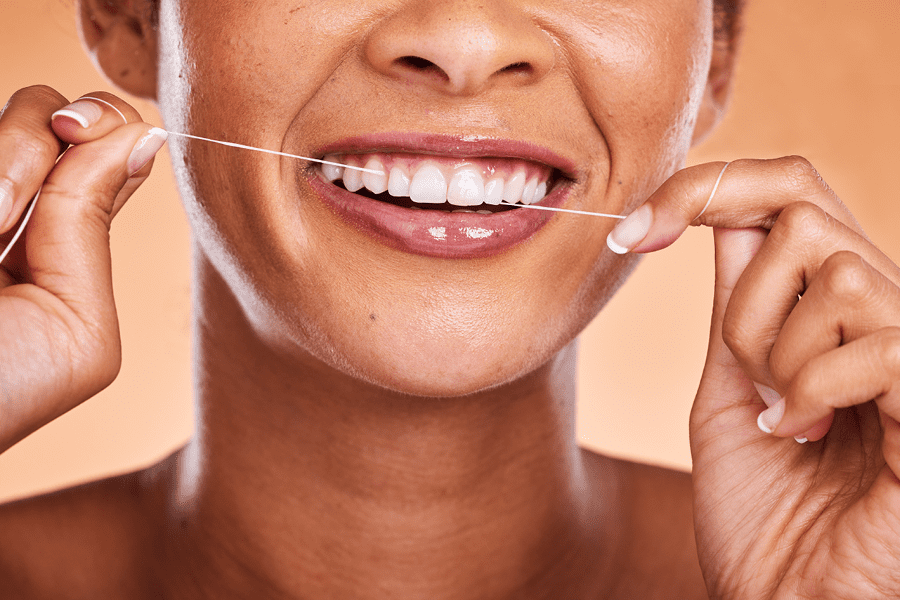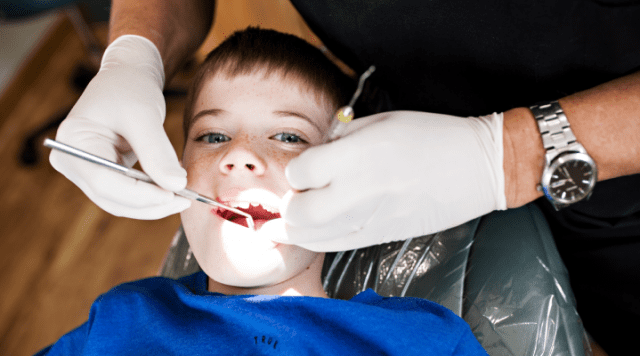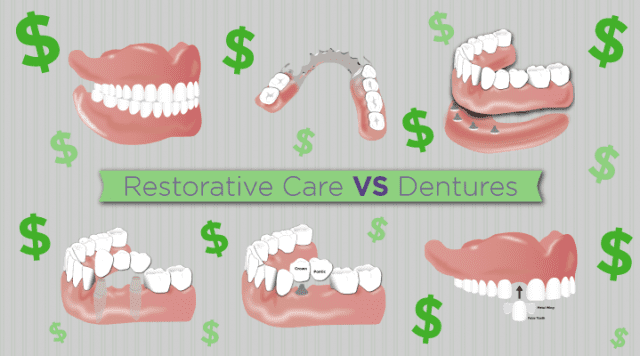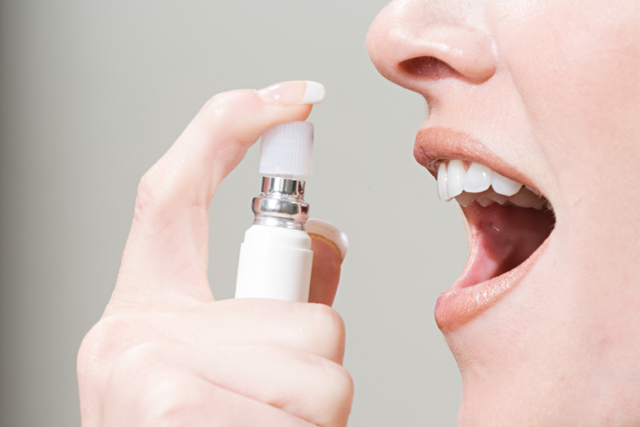Why gum health is so important
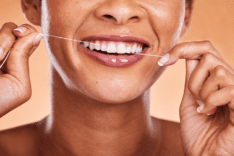
When it comes to oral health, the state of your teeth is probably the first thing you think of. While it’s important to take care of your pearly whites, oral health goes far beyond them!
More than just a frame for our smiles, our gums play a pivotal role in our overall health. Unhealthy gums can be a sign of more than just poor oral health. It can indicate:
- Inflammation in the body
- A higher risk of cardiovascular disease, diabetes, and other conditions
Gum health should never be overlooked as an important part of both your oral and overall health.
What are gums?
Gums are tissues that surround the base of your teeth and help keep them in place. Your gums help support the roots of your teeth and protect your jawbone, the bone structure that houses your teeth. Healthy gums vary in color but are generally light or dark pink or brown and feel firm to the touch. If your gum health is poor, your teeth may feel loose, sensitive, or look longer due to the tissue pulling away from them.
Pro tip: If you have gums that are swollen or bleeding, this may be a sign of early gum disease. Be sure to talk to your dentist about any changes in your gums.
Gum health is a window to your overall health
Although swollen, bleeding, or painful gums may not seem like anything to worry about, those symptoms are all signs of gum disease. Gum disease usually starts off in a mild form called gingivitis but can progress to a severe form called periodontitis without proper treatment.
Periodontitis occurs when irritation or swelling of the gum tissue that surrounds your teeth becomes filled with bacteria, plaque, and tartar, causing it to become infected. Bacteria carries the risk of entering your bloodstream through the gum tissue, which can impact other parts of the body and cause ongoing inflammation. This stress on your body may lead to other serious health problems.
A study from the Journal of Dental Research found that “periodontitis was significantly associated with increased risk of all-cause mortality and deaths due to [cardiovascular diseases], cancer, coronary heart disease (CHD), and cerebrovascular diseases, but not pneumonia.”
The study suggests the bacteria from severe gum disease can lead to systemic inflammation, growth of fatty materials inside arteries, and unhealthy levels of cholesterol or fats in the blood. These are all known risk factors for serious medical problems, including heart disease.
For more information about gum disease check out, “Periodontal (gum) disease: The silent health assassin.”
Gum health is something that should be taken seriously. If you notice any changes in the condition of your gums, reach out to your dentist and schedule an appointment.
How to take care of your gum health
Good oral hygiene and seeing your dentist on a regular basis are some of the best ways to take care of your gums. Brushing your teeth with fluoride toothpaste twice a day, flossing daily, and going in for a preventive cleaning and exam at least once a year, if not twice, are all necessary for quality gum health. If you notice any changes, such as bleeding that won’t stop or swelling in your gums, your dentist may want to see you more often.
If you’ve been diagnosed with gum disease, it’s important to be seen by an oral health professional to treat it and stop it from getting worse. Treatments will depend on the severity of your case.
Non-surgical treatments for mild cases may include:
- Tooth scaling: A technique designed to eliminate plaque and tartar from the tooth’s root above the gum line, typically carried out using a vibrating tool or a manual scraping device.
- Root planing: Root planing, akin to tooth scaling, involves gently moving the gums to clear away tartar and plaque below the gum line.
- Antibiotics: Antibiotics can clear infection associated with a gum disease diagnosis.
Severe cases may need surgical treatments such as:
- Gum grafts: Gum graft surgery is a procedure aimed at covering exposed roots and preventing further recession and bone loss. In this surgery, your periodontist utilizes gum tissue from your palate or another donor source to cover the exposed roots.
- Periodontal pocket reduction: In a periodontal pocket procedure, your periodontist carefully lifts the gum tissue, eliminating disease-causing bacteria before repositioning and securing the tissue. This process enables the gum tissue to reattach more effectively to healthy bone, promoting overall oral health.
- Regenerative procedures: In this procedure, the periodontist gently lifts the gum tissue, eliminating disease-causing bacteria. Membranes, bone grafts, or tissue-stimulating proteins might be applied to enhance your body’s natural regenerative abilities, promoting the regrowth of bone and tissue.
Taking care of your gum health is an important part of taking care of your health
Healthy gums mean more than a confident smile! By understanding the role your gum health plays in your overall health, adopting regular oral care habits, and going to a dentist consistently, you’re taking a big step to taking care of your wellbeing.
Related stories
-
Pediatric Dental Benefits: Procedure Categories
You’ve found a dentist and you’re ready to take your child to his or her appointment. Now, … Read More
-
Cost Considerations | Restorations and Dentures for Older Adults
Considering the cost of dentures, restorative care, and dental care for older adults? You’re in the … Read More
-
Most effective breath freshener
If you suffer from bad breath, also called halitosis, you’re not alone. It’s estimated that 50% of … Read More
Sign Up Now
Most Liked
- 1 Do Expiration Dates on Dental Products Matter? 305 Likes
- 2 Is Activated Charcoal Safe for your Smile? 167 Likes
- 3 Crazy and Cool Fish Teeth Facts 92 Likes
- 4 What Are Tonsil Stones? 81 Likes
- 5 Delta Dental Protects Your Eyes with DeltaVision® Coverage 74 Likes
- 6 The In-between Tooth: Guide to Bicuspids 53 Likes
- 7 Recipe: Quick Pumpkin Pudding 49 Likes
- 8 Bad Taste After Brushing? Common Explanations 44 Likes
- 9 People with Dental Benefits are Healthier 40 Likes
- 10 Own Your Oral Health: Subscribe now for tips to ensure a bright smile 39 Likes

